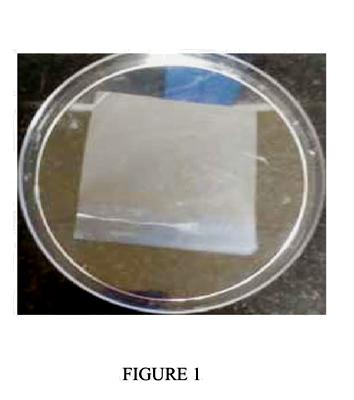Chennai, NFAPost: Indian Institute of Technology Madras has developed a Sustainable Antimicrobial Wrapping Material that can tackle two major problems – prevent packaged food contamination by bacteria as well as reduce the plastic waste generated in the environment when disposing the wrappers.
This biodegradable food wrapper has an in-built anti-bacterial compound and is safe for consumption.
The IIT Madras Team was recently awarded the ‘SITARE- Gandhian Young Technological Innovation (GYTI) Appreciation 2020’ for their project. The Researchers have also filed for an Indian patent. The research was led by Prof. Mukesh Doble, Department of Biotechnology, IIT Madras, and Puja Kumari, Research scholar, Department of Biotechnology, IIT Madras.
Around 300 million tonnes of plastic waste are produced every year. According to waste management experts, only 9% of all plastic waste gets recycled and about 12% has been incinerated. Further, an estimated 600 million – almost 1 in 10 people in the world – fall ill after eating contaminated food and 4,20,000 die every year.
Elaborating on their Research, IIT Madras Department of Biotechnology Prof. Mukesh Doble said, “Our idea is to design a food wrap that will address two major issues, namely Solid Waste and Food Contamination during storage due to bacterial growth. We have developed a biodegradable wrapping material with in-built antibacterial activity to prevent bacterial growth in stored food. The antibacterial compound should be safe for consumption as it is approved by the authorities and does not cause any toxicity.”
Prof. Mukesh Doble said, “The wrapping material we have developed also degrades at various environmental conditions with the rate of degradation varying from 4 to 98% in 21 days. The wrapping material degraded rapidly in moist conditions when compared to dry ones. Hence, our wrapper is eco-friendly and can play a major role in plastic waste reduction.”
The films developed by IIT Madras Researchers were made with Polymeric blends containing starch, polyvinyl alcohol, cyclic beta glycans (CBG). The composition was optimised to achieve the best film with a smooth texture, flexibility, uniform thickness and good clarity. The polymers used are approved by the United States Food and Drug Administration (FDA).
The antibacterial agent selected is also approved by the food authority for consumption and includes eugenol, chlorogenic acid, betanin, curcumin and gallic acid, among others. These compounds are used regularly in Indian food and are known to possess antibacterial, antioxidant and many other beneficial bioactivities. The compound is either immobilised on the surface or coated or mixed with polymer before preparation.
Speaking about the studies conducted by the research team, IIT Madras Research scholar, Department of Biotechnology, Puja Kumari said, “Our antibacterial coated polymer wrapper was used for wrapping panner, meat and chicken and its performance was tested. Samples were placed in 4oC and 30oC for 10 days and tested for the effect of the coating on reducing the bacterial growth with respect to the uncoated wrapper.”
Puja Kumari added, “Our study found that 99.999% reduction in the bacterial colonies was observed in food samples wrapped with our antibacterial wrap and stored at 30oC for 10 days when compared with a plain wrapper. This study also suggests that our antimicrobial wrapper can, to some extent overcome, the reduced availability of cold storage units. Paneer is known to have a very low shelf life (less than 7 days) and hence extending its shelf life is a major advantage.”
Generally, bacterial growth is higher when stored at 30oC when compared to storage at 4oC. There is a shortage of cold storage units in India which leads to food spoilage and wastage. Hence, if the wrapper can protect the food from bacterial contamination at normal room temperature, then it is an added advantage.
Prof. Mukesh Doble said, “Currently, we are looking for funds to scale up the process and test our product with more food samples. We also need to compare the mechanical properties as well as the cost of the developed films with commercial products in the market.”
The researchers also found that the wrapping material degraded at various environmental conditions with rate of degradation varying from 4 to 98% in 21 days. The material degraded rapidly in moist condition when compared to dry ones.





